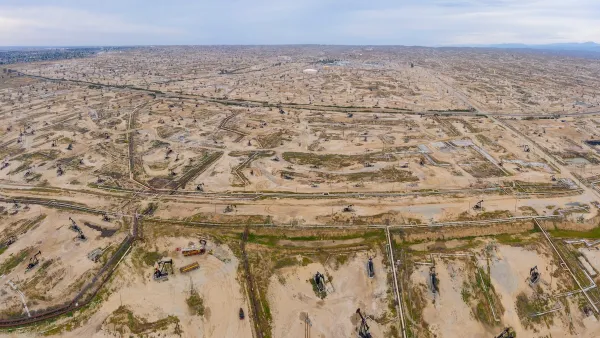A new study finds that 65% of greenhouse gas emissions in the U.S. are under the direct or indirect control of individuals. However, many of those habits are difficult to change given land uses.
"The figure for consumers in the rest of the world is just 43%. Americans, largely because of how they drive and how they build and use their homes and offices, lead some of the most energy-intensive lives in the world.
'We in the U.S. have a much greater ability to influence this issue than perhaps people recognize,' says Jon Creyts, a McKinsey principal who assembled the numbers.
But harnessing people power won't be easy. There are big practical constraints, notably costs."
FULL STORY: A Big Sum of Small Differences

Analysis: Cybertruck Fatality Rate Far Exceeds That of Ford Pinto
The Tesla Cybertruck was recalled seven times last year.

National Parks Layoffs Will Cause Communities to Lose Billions
Thousands of essential park workers were laid off this week, just before the busy spring break season.

Retro-silient?: America’s First “Eco-burb,” The Woodlands Turns 50
A master-planned community north of Houston offers lessons on green infrastructure and resilient design, but falls short of its founder’s lofty affordability and walkability goals.

Test News Post 1
This is a summary

Analysis: Cybertruck Fatality Rate Far Exceeds That of Ford Pinto
The Tesla Cybertruck was recalled seven times last year.

Test News Headline 46
Test for the image on the front page.
Urban Design for Planners 1: Software Tools
This six-course series explores essential urban design concepts using open source software and equips planners with the tools they need to participate fully in the urban design process.
Planning for Universal Design
Learn the tools for implementing Universal Design in planning regulations.
EMC Planning Group, Inc.
Planetizen
Planetizen
Mpact (formerly Rail~Volution)
Great Falls Development Authority, Inc.
HUDs Office of Policy Development and Research
NYU Wagner Graduate School of Public Service




























